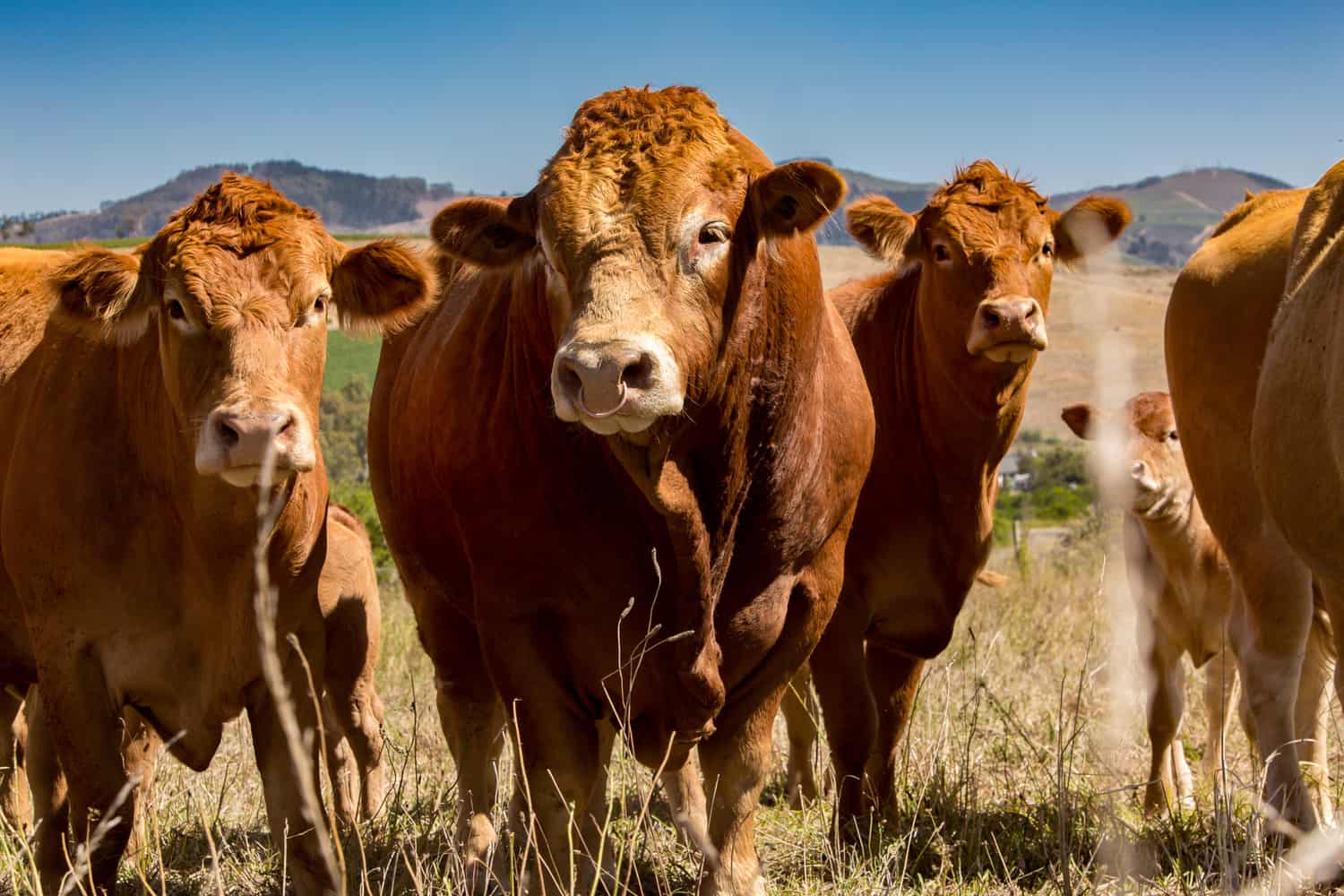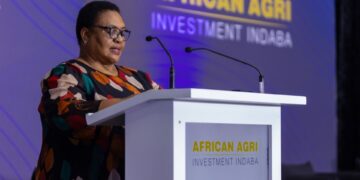African Greeneurs is turning young South Africans into confident, thriving agripreneurs. With Nedbank’s support, these future farmers are gaining the tools, training, and market access to grow businesses and communities alike.
In South Africa’s agricultural landscape, something remarkable is taking shape: a movement focused on equipping young people with the skills, knowledge, and resources to build thriving businesses in farming.
At the centre of this initiative is African Greeneurs, an organisation born from the Enterprising Africa Regional Network (EARN). Their mission is clear: develop Africa’s youth into successful agripreneurs who grow profitable, sustainable businesses that create jobs and uplift communities.
Kobang Maluleka, managing director of African Greeneurs, shares insights on the organisation’s journey and its partnership with Nedbank. This collaboration has become a cornerstone for nurturing the next generation of African agripreneurs.
A purpose-driven approach to agripreneurship
“EARN was founded in 2014,” Maluleka explains, “with the core idea that profit should be coupled with impact. We were looking at how we could make a meaningful difference, not just in South Africa, but across the continent.”
This philosophy is anchored in what the organisation calls a Massive Transformative Purpose (MTP) – a guiding principle that drives everything they do. For African Greeneurs, the MTP is clear: equip Africa’s youth with the tools, knowledge, and resources to build thriving businesses in agriculture, hospitality, and technology, ultimately reducing unemployment and fostering prosperity.
Central to achieving this vision is the hands-on, practical approach African Greeneurs employs. They operate a 100-hectare commercial farm in Ekurhuleni, alongside a dedicated training centre in Centurion, Gauteng. Here, budding agripreneurs immerse themselves in the realities of running an agricultural business: from crop management to understanding market demand.
“We create impact programmes that are practical,” Maluleka shares. “We bring the lessons learned from our commercial operations directly into the training environment, so these young people are prepared for the real world of business.”
Related stories
- Nedbank backs SA’s next generation of farmers with R7.1 million
- Innovation and resilience key to agriculture’s future, says Nedbank
- Four steps to formalise your farm and unlock finance
Nedbank: A partner in impact
But African Greeneurs doesn’t stop at training. The organisation recognises that knowledge alone cannot sustain an agripreneur’s journey. Access to funding, markets, and infrastructure is equally critical, and this is where Nedbank steps in.
The partnership between African Greeneurs and Nedbank’s Enterprise Supply Development programme represents a fusion of aligned purpose and shared vision.
“Nedbank shares our philosophy of creating measurable, sustainable impact,” says Maluleka.
“They bring financial expertise, credibility, and the ability to scale initiatives beyond our immediate reach. With their support, we’ve been able to develop 20 agripreneurs: 10 in Gauteng and 10 in Mpumalanga who have successfully completed our intensive programmes and are now supplying major retailers like Pick n Pay through our aggregation network.”
The structure of African Greeneurs’ programmes is as meticulous as it is innovative. The Agripreneur Development Programme spans 12 months, complemented by a 24-month post-transition acceleration phase.
Participants undergo rigorous assessments, ensuring they have the aptitude, interest, and entrepreneurial potential necessary for success.
“From hundreds of applicants, we select the top candidates; those truly passionate about agriculture,” Maluleka explains. “Our focus is on quality, not quantity, because we want each agripreneur to thrive and scale their impact.”
Scaling Africa’s agripreneurial future
The first three months of the programme, dubbed the “activate phase,” blend personal development with technical business training. Participants engage in practical exercises, create bankable business plans, and even scout for land where they can eventually establish their own farms.
The following nine months, the “accelerate phase,” sees them operate almost as if they own their own businesses – growing crops, managing finances, and interfacing with markets under guidance from mentors.
The programme is designed with an exit strategy in mind: graduates leave not just with knowledge, but with a ready-to-launch business, equipped with equity generated during the programme, and a network of support from coaches, mentors, and financial partners.
The impact of this approach is tangible. African Greeneurs graduates are not only finding their footing in agriculture; they are creating jobs and contributing to local economies. The organisation’s expansion strategy reflects this commitment.
Beyond Gauteng and Mpumalanga, initiatives are underway in Limpopo and the Northern Cape, with hubs developed in collaboration with Eskom, the Dutch Embassy, and local municipalities.
For Nedbank, the partnership is emblematic of their broader commitment to social development. By investing more than R6 million into African Greeneurs’ programmes, they are catalysing a ripple effect: financial support that empowers young agripreneurs to access land, markets, and infrastructure, while simultaneously fostering innovation and job creation.
Maluleka emphasises, “We could not have done this without Nedbank. Their involvement allows us to bridge the gap between training and commercial success, ensuring our agripreneurs are sustainable, not just in the short term, but for generations to come.”
Looking ahead, African Greeneurs envisions a continent-wide movement. The goal is to integrate capacity building, capital access, and collaboration into a cohesive ecosystem that nurtures agripreneurs from early-stage support to commercial viability.
Maluleka believes that with continued partnerships like Nedbank’s, African agripreneurship will no longer be a pilot project. It will be a transformative force driving Africa’s next generation of growth.
In a country where youth unemployment remains a pressing challenge, African Greeneurs and Nedbank are proving that with vision, structure, and support, the seeds of change can indeed bear fruit.
As Maluleka puts it, “By building a pipeline of capable agripreneurs, we are not just creating businesses; we are creating communities, jobs, and hope for Africa’s future.”
Through programmes like these, the future of African agriculture is not just in the soil. It’s in the hands of the continent’s young innovators, nurtured by visionaries like African Greeneurs and supported by institutions like Nedbank. And as we watch this ecosystem grow, one thing is clear: Africa’s agricultural champions are being forged, one agripreneur at a time.
READ NEXT: SA food inflation: Why groceries became so expensive
















